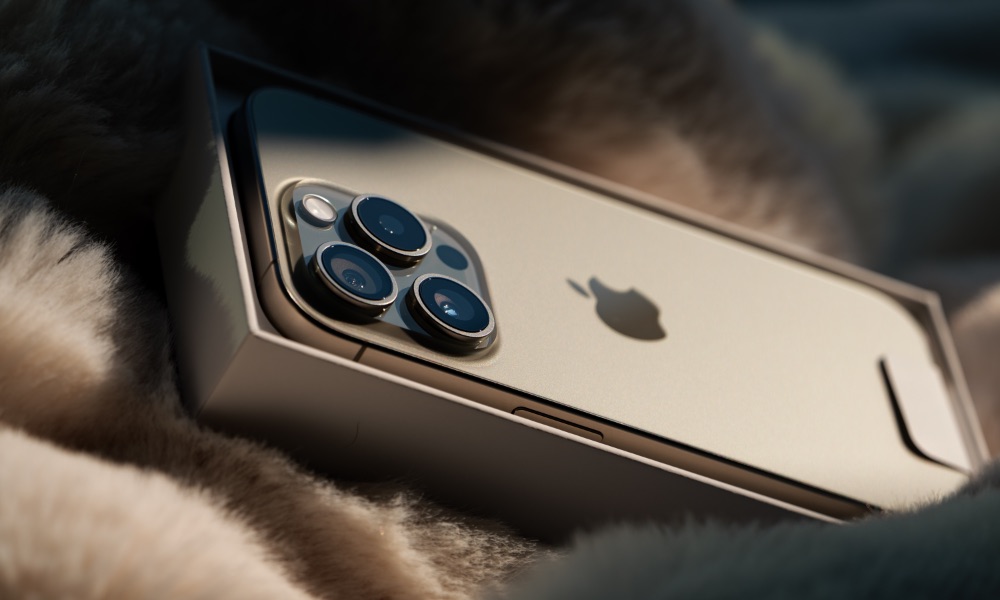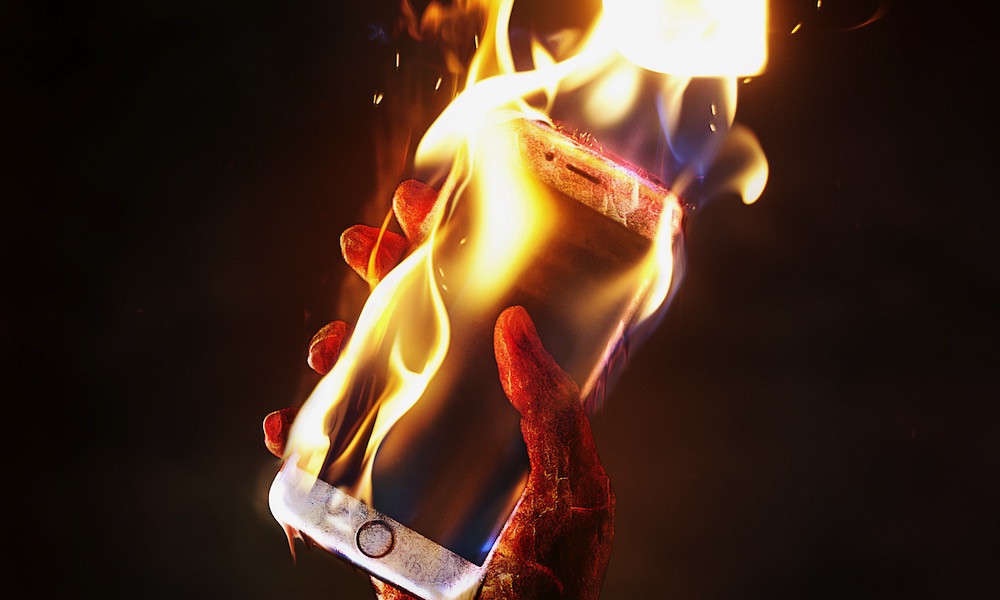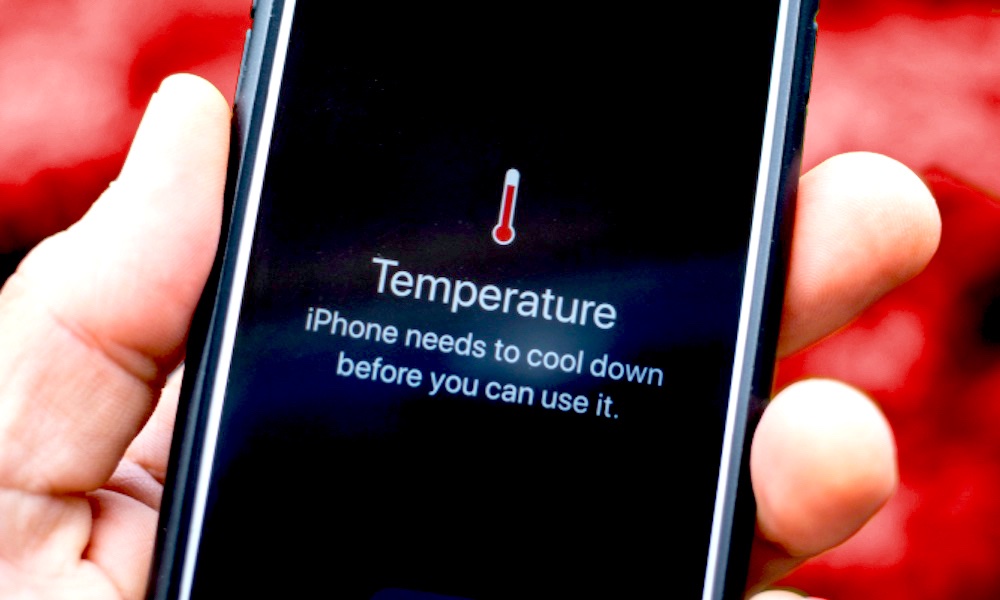Scam Alert: Verizon is Not Calling iPhone 15 Users About Overheating Issues
 Credit: Yuheng Ouyang
Credit: Yuheng Ouyang
Toggle Dark Mode
It seems cybercriminals are always looking for a new angle they can use to try and scam people out of their hard-earned money and possessions, and the latest one making the rounds appears to be capitalizing on fears around the recent (and now fixed) iPhone 15 overheating issues.
According to Mashable, scammers have been calling up new iPhone 15 owners while pretending to be representatives from Verizon and possibly other carriers, claiming to be conducting a recall program for overheating iPhone 15 models.
This came to light as Mashable’s Cecily Mauran was targeted by the scam. Mauran received a few phone calls from an unknown number shortly after she ordered a new iPhone 15 through Verizon. When she answered one, the caller claimed to be a Verizon representative asking if her iPhone had been delivered and letting her know that they’d reach out to her again after it arrived to run remote diagnostics to determine if her new iPhone 15 was subject to the widely-reported overheating issue.
A day after she received her iPhone 15, Mauran received the promised follow-up call from another person also claiming to be with Verizon, who indicated that she needed to return her iPhone 15 as soon as possible because it was “dangerous.”
They said the new iPhone 15s were having overheating issues and…they’d received communication from Apple that my phone was one of the defective devices. They said they needed to come and pick up my phone right away, because it was ‘dangerous’.Cecily Mauran, Mashable
The “Verizon” rep said they’d arranged for FedEx to come and pick up her iPhone, promising that the carrier would be shipping a brand-new iPhone 15 overnight.
Of course, since there had already been quite a few reports of the overheating issue in the news, the scammers made a very convincing case, especially in light of the infamous 2016 debacle of exploding Galaxy Note 7 phones. While that was undoubtedly a scary problem, it was isolated to that one particular Samsung phone; while there have been other cases of smartphones catching fire, they’re generally sporadic and isolated incidents rather than defects in an entire product lineup.
Nevertheless, scammers are counting on the fact that folks will consider the worst-case scenario — that an overheating iPhone 15 could explode and set their house on fire — and rush into returning their new iPhone 15 before fully thinking things through.
However, as Mashable reminds us, online safety experts have stressed for years that you should never trust a random call that you receive, no matter who the person on the other end is claiming to be. That means not giving out any personal information, using iTunes Gift Cards to pay off debts, or agreeing to ship anything out.
The best thing to do in a case like this is exactly what Mauran did: Call the company back at their official number to confirm if the person who called you is truly a representative of the company.
Unsurprisingly, when Mauran got a hold of an actual Verizon representative, they not only confirmed that the phone call they received did not come from them but that this wasn’t something that Verizon does.
To be clear, Verizon would never contact customers via phone for a recall or product issue.Statement from Verizon to Mashable
However, since the scammer had already set their plan in motion to have Mauran’s iPhone 15 returned, a real FedEx truck arrived at her home a few hours later with a shipment label that listed the destination as “RETUNS PROCESING CENTER” [sic], with a physical address in Miami, Florida. Mauran explained the situation to the FedEx driver and declined to hand over her iPhone.
The scammer called Mauran again shortly after the FedEx driver left to confirm the pickup, and when Mauran called them out on it, they insisted they were legitimately from Verizon and told her a supervisor would call her back to confirm. It surprised no one that this follow-up call never came.
What’s also a bit unsettling about this scam is that the crook had enough information to target Mauran specifically. They clearly had a way of knowing that she was a Verizon customer and seemingly that she had recently ordered a new iPhone 15. That latter part could have been a guess, as Mauran indicated the scammer had an old email on file for her, suggesting their information on her came from a previous data leak some time ago.
As for the overheating issue? The sad part about reports like these is that the problem often gets magnified far beyond the solution. The possibility of the iPhone 15 overheating made a lot of headlines, some of which were overblown; the fact that Apple has since fixed it was much less exciting news.
The reality of the situation is that some — not all — owners of the iPhone 15 Pro and iPhone 15 Pro Max reported their new iPhones getting excessively hot. In some cases, too hot to comfortably handle but not so hot as to cause burning. There were also never any reports of it triggering a heat warning on the iPhone display.
The issue didn’t affect everyone, but there also didn’t seem to be any obvious common thread as to why some folks had problems while others did not. It also didn’t impact the standard iPhone 15 and iPhone 15 Plus models at all — only the Pro versions, with their more powerful A17 Pro chip.
While Apple never explained precisely what was happening, it resolved the issue with an iOS 17.0.3 update in early October, combined with working to help developers fix specific apps where Apple had identified bugs contributing to the overheating problem, including popular ones such as Instagram and Uber.
The bottom line is that there are no recalls in place for any iPhone 15 model, and the overheating issue has been resolved in the latest iOS 17 software updates. Anybody who is still having issues should reach out to Apple Support directly.
Despite a theory put forth by analyst Ming-Chi Kuo, the overheating problem was not due to “thermal compromises” that Apple made in the design of the new titanium iPhone 15 Pro and iPhone 15 Pro Max, nor was it necessary for Apple to throttle the performance of the A17 Pro chip to address the issue — benchmarks conducted after iOS 17.0.3 was released showed no changes in performance.









